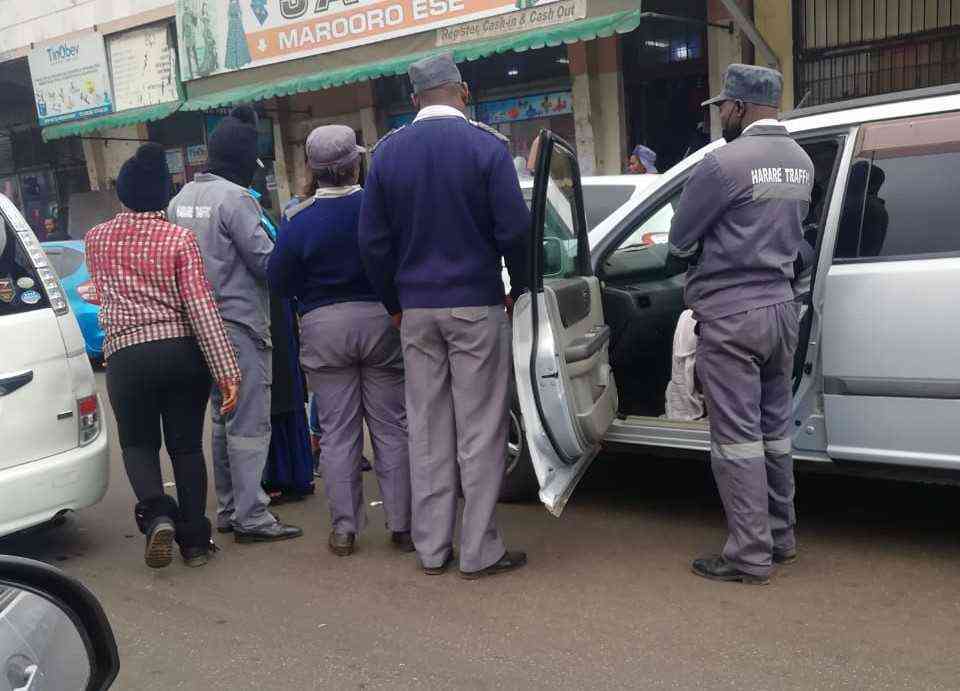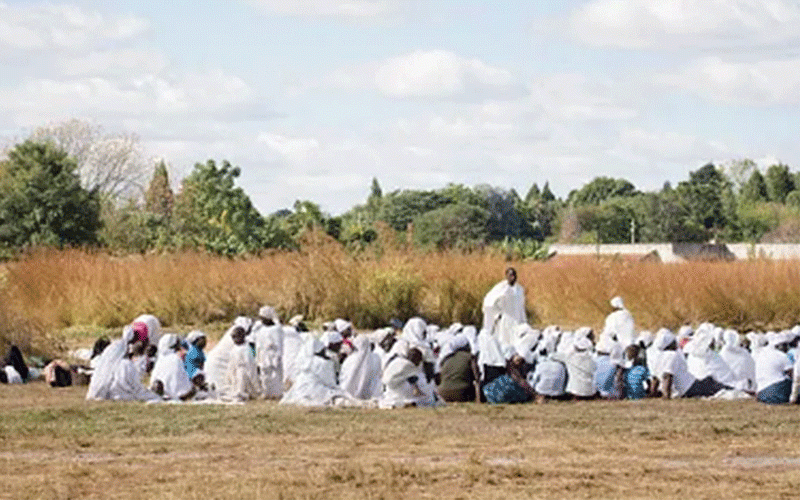
Last week a tragic accident on Seke Road took the lives of several individuals when a haulage truck collided with a kombi.
This heart-breaking incident has left many families grieving and has raised serious concerns about road safety in Harare.
In response, President Emmerson Mnangagwa announced compensation of $1 000 for each bereaved family.
While this move is appreciated, it does not come close to compensating for the loss of life and the sorrow that follows.
The pressing issue remains the need for improved road infrastructure and stricter penalties for roadworthy vehicles, particularly kombis.
The City of Harare recently introduced a master plan that proposes banning kombis and pirate taxis within three years to enhance road safety.
While this initiative aims to address safety concerns, it fails to tackle a fundamental problem, that is the state of our roads.
Many kombis operate on pothole-ridden streets, contributing to frequent accidents. Before considering a ban, it is crucial to improve road maintenance.
- HCC considers cancelling ZimPhos contract
- We're not immune to prosecution: Land developer
- Govt to blame for Mupedzanhamo chaos
- City of Harare, Augur deal legit: Supreme Court
Keep Reading
Current data shows that around 50% of Harare residents rely on kombis and pirate taxis for their daily commutes.
This heavy dependence highlights the importance of improving safety within this transport sector.
Additionally, 28,5% of the population uses private vehicles, while 16,9% walk to their destinations.
This reliance on informal transport systems underscores the need for effective safety measures.
If Harare is genuinely committed to reducing accidents, it must ensure that only vehicles meeting safety standards are allowed on the roads.
In South Africa, authorities have implemented fines of up to 50 000 rand for kombis that do not meet roadworthiness requirements.
Such measures promote compliance and prioritise passenger safety.
The statistics surrounding road safety in Zimbabwe are alarming. Reports indicate that nearly 1 000 people died in road accidents last year, with a significant number of these incidents involving kombis.
However, the Harare City Council has restricted kombis (small commuter omnibusee) with 26 seats or less to operate within a 60-kilometre radius of the city center.
This measure, implemented by the Ministry of Transport and Infrastructural Development, aims to reduce road accidents by limiting the distance kombis travel, as they are often associated with speeding and reckless driving on longer routes.
Poor road conditions are often cited as a major contributing factor.
Although the Trabablas Interchange represents a significant investment, reportedly costing millions of dollars, many roads leading to and from this project remain in disrepair.
Potholes and damaged surfaces create hazardous driving conditions, particularly for vehicles like kombis that are already at risk for accidents. Rather than focusing solely on banning kombis, the city council should prioritise improving road infrastructure.
Moreover, the city council had previously envisioned making Harare a “Sunshine City” by 2025.
However, the reality is starkly different. Many bus terminuses lack basic amenities such as shelters and lighting, leaving commuters exposed to the elements.
The traffic lights (robots) around the city are frequently non-functional, creating confusion and increasing the likelihood of accidents.
In addition to these issues, the city's drainage system has been failing. Burst sewers have become a common sight, leading to unsightly and unsanitary conditions.
A particularly alarming incident involved a man who was seen bathing in a makeshift dam that formed along the intersection of Nelson Mandela Avenue and Rezende Avenue after pipes burst.
Such neglect of basic infrastructure not only compromises public health but also contributes to the overall chaos on our roads.
Furthermore, small room offices intended for council officials at bus terminuses, such as Copa Cabana, have fallen into disuse. Instead of serving their original purpose, these spaces have become makeshift shelters for street kids and homeless individuals.
This shift not only reflects a failure in urban planning but also highlights the urgent need for the city council to take responsibility for maintaining public spaces.
Therefore, instead of merely focusing on the removal of kombis, the city council should address these glaring infrastructural deficiencies. A well-functioning city is essential for promoting safety and efficiency in public transport.
Recommendations for the city master plan
To enhance safety for Harare's residents and improve the master plan’s effectiveness, the following recommendations should be considered:
Prioritise road maintenance: A significant portion of the budget should be allocated to repair and maintain existing roads. This includes filling potholes, resurfacing, and improving signage. A well-maintained network is essential for reducing accidents.
Implement stricter penalties for roadworthy vehicles: Establish penalties similar to those in South Africa for kombis that do not meet safety standards. Regular inspections should be mandatory, and offenders should face substantial fines.
Invest in public transportation alternatives: While the master plan emphasises banning kombis, it should also focus on promoting reliable public transportation options. Investing in a well-organized bus system can offer commuters safe and efficient travel alternatives.
Upgrade bus terminuses: Invest in basic amenities at bus terminuses, such as shelters and lighting, to improve the commuting experience. This can also enhance safety for passengers waiting for transport.
Restore traffic management systems: Ensure that traffic lights and signage are functional to manage the flow of vehicles more effectively. This can significantly reduce the chances of accidents and improve overall road safety.
Address sewage and drainage issues: Prioritise repairs to the sewage system to prevent burst pipes and unsanitary conditions in the city. Proper drainage can also help in managing storm water and reducing flooding, which poses additional risks to road safety.
Utilise abandoned spaces for community services: Rehabilitate small room offices at bus terminuses to serve their intended purpose, providing services for commuters and support for vulnerable populations. This can also help restore a sense of order and purpose to public spaces.
The recent accident on Seke Road serves as a stark reminder of the urgent need for improved road safety in Harare.
While the city council’s plan to ban kombis is a step in the right direction, it is vital to address the underlying issues of road infrastructure and vehicle safety first.
The loss of life cannot be measured in monetary terms; meaningful action is required to prevent future tragedies.
The vision of a “Sunshine City” is attainable, but only if the city council takes decisive and comprehensive action.
*Raymond Tendai Rusinga is an independent researcher and policy analyst in Harare, Zimbabwe. Please feel free to WhatsApp or call: +263 776 206 227 or email: rayrusinga02@gmail.com. He writes here in his personal capacity.









